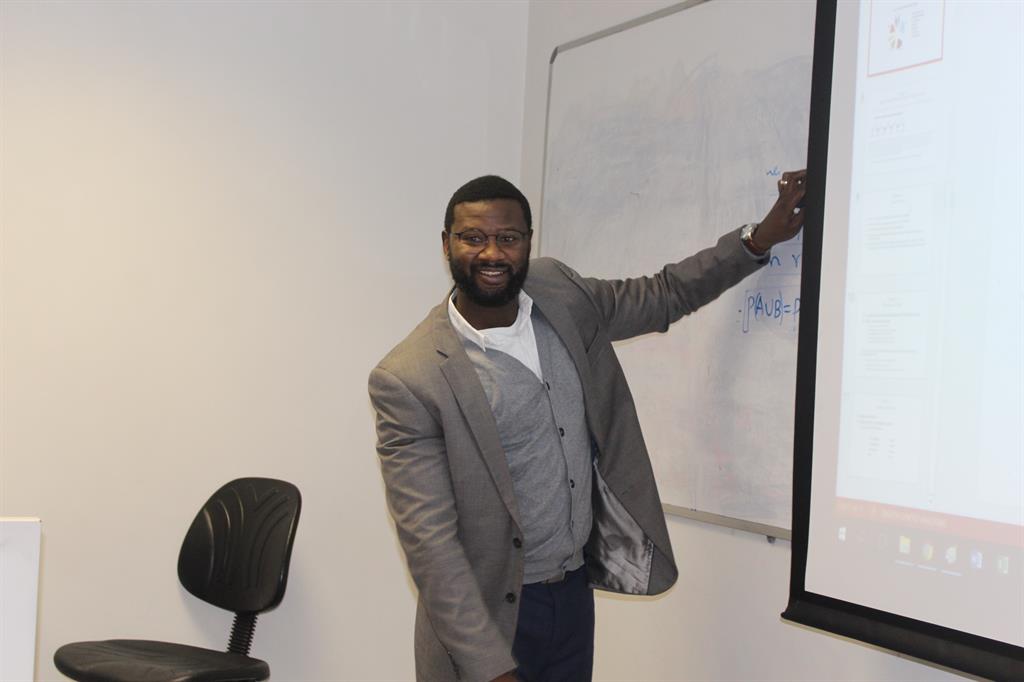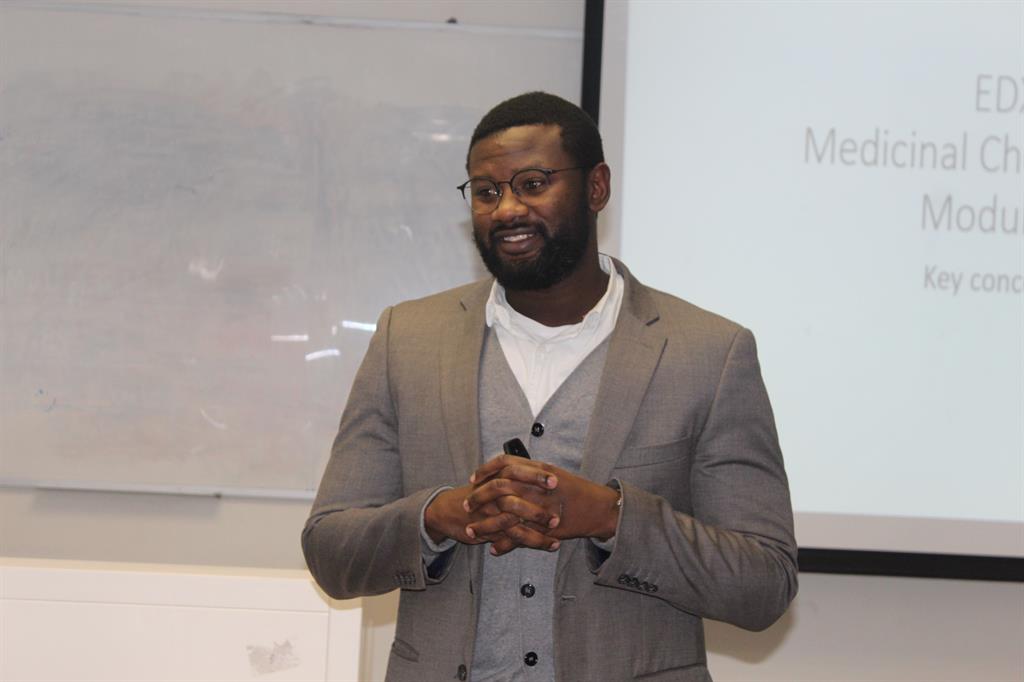Mutorwa’s journey with science
Marius Mutorwa, who is inspired by his dad, is responsible for teaching, learning, assessments, research, community service and administration.
Justicia Shipena Marius Mutorwa is a lecturer at the Namibia University of Science and Technology (Nust) in the department of health and applied sciences.
He is responsible for teaching, learning, assessments, research, community service and administration.
Mutorwa said he was inspired by his dad, whose first profession was teaching at a local school in northern Namibia (Rundu Secondary School) and he was later appointed as the principal at Linus Shashipapo and Maria Mwengere secondary schools.
During his second year at university, Mutorwa experienced a realisation that he wanted a career as an academic.
Mutorwa was employed as a student assistant or tutor in the chemistry department and also worked at a local bookshop.
“It was such a rewarding experience to talk about the subject you love and transfer my knowledge and see young people’s love of their subject increase, their academic performance improve and them being guided in their choice of a future career,” he said.
In addition he still gets inspired most days when he engages with students, as they make him think and adapt the way he thinks about his work (both lecturing and research).
“The students that sometimes find the course or research projects a bit challenging inspire you through their dedication and work ethic, by constantly striving to improve,” he said.
Mutorwa says being an academic requires you to become a specialist or expert in a particular field of study or subject, in his case its organic chemistry.
During his secondary schooling years, he became fascinated with natural science subjects such as chemistry, physics and biology. He then selected these subjects in grade 10 and completed grade 12 in 2002.
He registered for a Bachelor of Science degree at Rhodes University in 2003 and successfully completed it in 2005.
“I proceeded to do my BSc honours degree in chemistry in 2006 and graduated in 2007.
“I was fortunate, through effort and hard work, to receive a scholarship to pursue my MSc degree in chemistry in 2008 and made good strides in my studies to such an extent that we successfully applied for the MSc degree to be upgraded to a PhD programme in organic chemistry, which I was awarded in April 2012, at aged 27,” he said.
Some of the character traits one needs to do his job or follow this type of career path is the realisation that knowledge is essential, specifically in your subject area, as well as excellent communication skills, being results-driven and a strong great attention to detail, a strong work ethic and being able to manage time your time well.
Enthusiasm and confidence are also critical.
Mutorwa said among his career highlights so far was completing his PhD at the age of 27 while working part-time in the department of chemistry at Rhodes University.
When he joined Nust, which was then known as the Polytechnic of Namibia, in September 2012, he joined the natural science unit with a staff complement of about four.
Their task was to transform the unit into the department of natural and applied sciences, which was achieved in 2013 and the first intake of students for Bachelor of Science degrees occurred in 2014.
“I am proud to have been part of the process of establishing the department,” he said.
Mutorwa was appointed as deputy head of department (HOD) in 2014 at the age of 29 and was tasked to assist the HOD to provide strategic leadership and management, particularly during the transformation process of the institution from the Polytechnic to Nust.
He was also appointed project counterpart in 2012 for the International Atomic Energy Agency (IAEA) technical cooperation programme with the Namibian government, in partnership the Ministry of Health and Social Services, as custodians of all nuclear science related matters in the country.
The technical cooperation project focused on establishing teaching, research and technical capacity in nuclear-related disciplines to support the sustainable development of the nuclear industry in Namibia.
The project was also focused in the fields of uranium mining and extraction, health, energy, safety, security, water, agriculture and environmental management.
“I am pleased we were able to meet most of our specific objectives in the project, with a 98% successful implementation rate,” he said.







Comments
My Zone
No comments have been left on this article